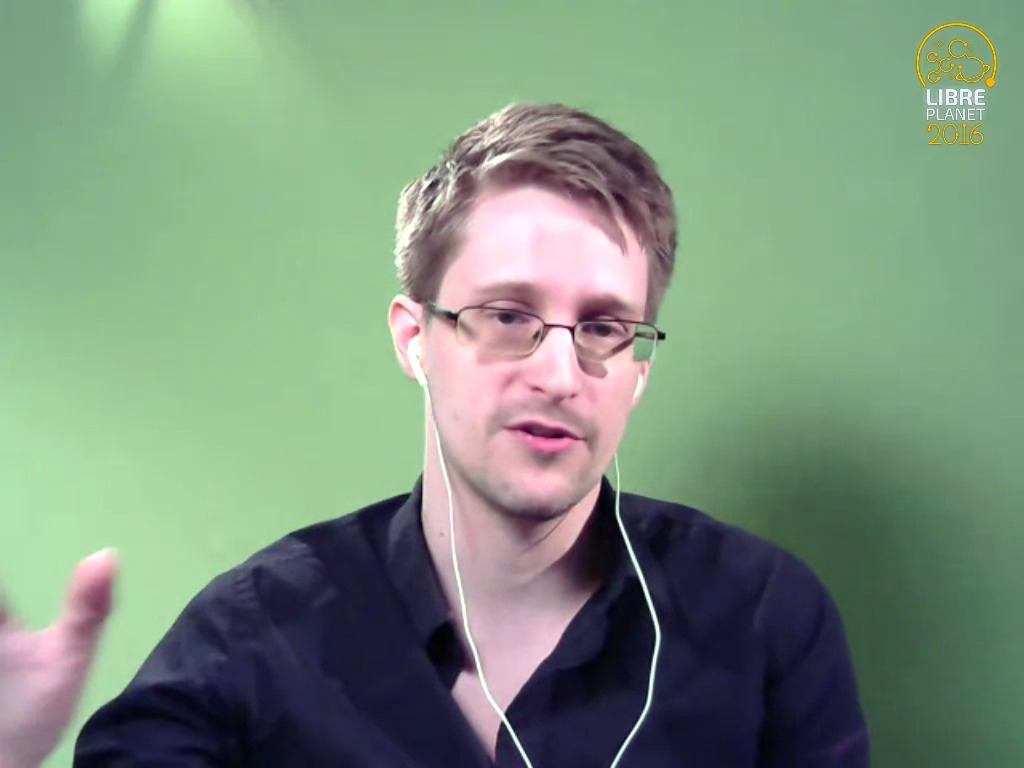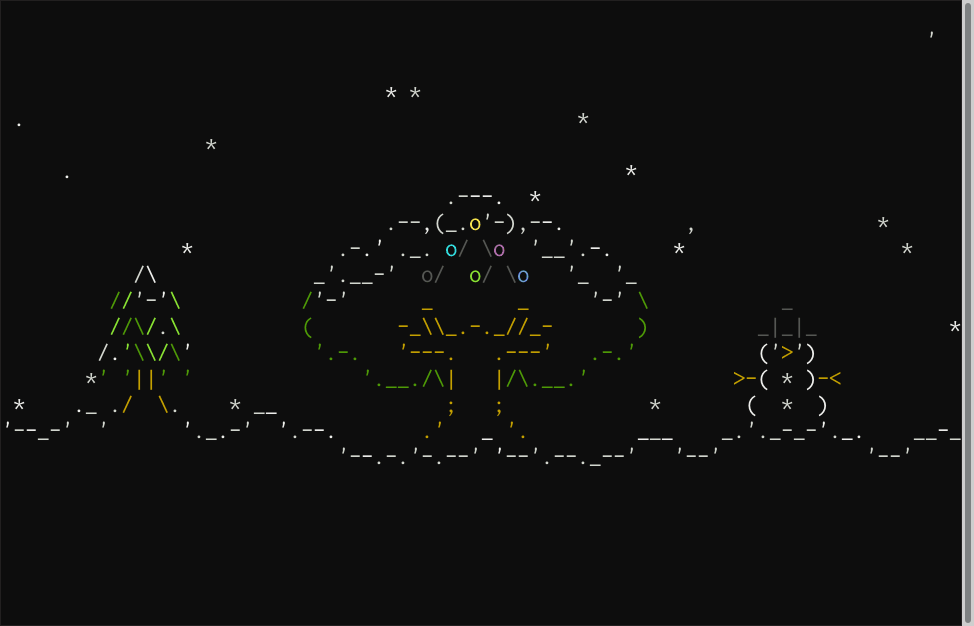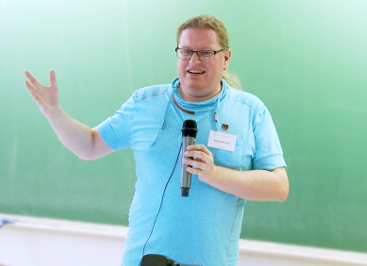![[RSS]](/static/img/feed-icon-14x14.2168a573d0d4.png) Conservancy Blog
Conservancy Blog
Displaying posts
tagged software freedom for everyone
![]()
What Free Software Says About Today’s Crises
by on January 14, 2020
I always have a little special appreciation for free software that’s easy to recommend to folks who don’t think or care much about software freedom yet. There are a lot of projects like that, and the one I’ve been talking about the most lately is OsmAnd, a mapping and navigation app using OpenStreetMap data. Whenever I hear people say “I wish Google Maps did X,” OsmAnd almost always does the job with a more discoverable interface. After they’re set up and happy, it’s easy to talk about how OsmAnd doesn’t track your location the same way Google Maps does.
I’ve spent a lot of time over the past few years asking myself whether it’s important to work on free software, or if I should even care about free software, given how pressing so many other problems feel. Climate change, authoritarian governments, antisemitism and white nationalism—these are the problems that are destroying people’s lives by the thousands, today and every day. How is free software even relevant to those problems?

Edward Snowden discussed free software at LibrePlanet 2016 with Conservancy Supporter Daniel Kahn Gillmor. “[The credits of Citizen Four] thank a number of FOSS projects including Debian, Tails, Tor, GnuPG… because what happened in 2013 would not have been possible without free software.” CC BY-SA
I still don’t always have a solid answer to that question. But as I think it through, one thing I keep coming back to is Edward Snowden’s keynote at LibrePlanet a few years ago. His call to action in that talk was to continue working on free software, because the values of free software, like autonomy and privacy, are values most people share. While a lot of people may choose to compromise some of those values to accomplish other things today, proprietary software companies are constantly changing their rules and asking for more. It’s always important and valuable for free software to show and offer an alternative. The most experimental development can help expand the scope of what’s possible, while the smallest documentation patch makes that all accessible to a wider audience.
When the Wikipedia and OpenStreetMap projects began, I’m not sure too many people envisioned that you would have easy access to all that data from a computer in your pocket. But now when people start expressing alarm about how much location data different apps on their phone are getting, and how that data might be used to track protestors, free software has something to say about that, and an alternative to offer in OsmAnd.
When Apple removes an app from their App Store that Hong Kong protestors were using to avoid dangerous areas, free software has something to say about that, and an alternative to offer in F-Droid.
When Facebook says they’ll allow politicians to lie in ads, and Twitter refuses to remove their hatemongering tweets, free software has something to say about that, and an alternative to offer in Mastodon.
Everything Conservancy does aims to make these alternatives more real to more people. Fiscal sponsorship helps fund all kinds of development, from the wildly experimental to the most nuanced polish. License enforcement ensures that people actually have the autonomy over their software and devices that the GPL promises them. Our advocacy and outreach work tells more people about our vision for technology, and how they can join us.
We’re coming up on the final days of our annual fundraiser, with just about $10,000 left to be matched. If you haven’t already, there’s no better time to join us as a Supporter to help us sustain this work. If you are already with us, an extra contribution would go a long way to help ensure we start 2020 strong. I can’t promise I know how every individual task we do addresses the world’s most pressing problems—but I also don’t know what challenges tomorrow will bring. I only know that building a strong foundation now will make sure we’re in the best place to address them when they arise in the future.
Talking To Friends and Family About Software Freedom
by on December 23, 2019
Many folks are heading home to family or getting ready to spend some time with their families of choice. At Conservancy, we believe that software freedom should be for everyone so that got us thinking about how we can help others gain control over their computing environment. We asked a few software freedom enthusiasts about whether or not they talk to family and friends about free and open source software. Luckily, they were willing to share their advice and encouragement. Perhaps, you'll find some ideas in here for talking to loved ones about software freedom too!
Adam Monsen is a SeaGL co-founder, a Seattleite and the Senior Director of Engineering at C-SATS R&D. His thoughts: "Free and open source software is critical in the context of medical devices. In 10 years we'll be able to install a 'perfect sleep', 'perfect focus' or 'no pain' implant. We need free and open source software implants for full control of our data for our privacy, our autonomy, and, ultimately, our freedom."
Alice Monsen is ten. She recently gave her first free software talk at SeaGL on using Krita to build RPG characters. Her advice: "Yes, we should always talk about free software. If it doesn't work how you want, you can change it!"
Mako Hill is a free software activist and an Assistant Professor at the University of Washington in the Department of Communication. He says: "Although most free software folk are technologists who came for the software and stayed for the freedom, our family and friends usually care much less about software than we do. Conversations about freedom that are a hard sell with techno-phile crowds often resonate more easily with folks who are already skeptical about technology. Most of all, meet people where they are! Building a critical capacity to think about issues of technology, power, and autonomy is both a more effective strategy and a more important goal that trying to lead someone to any specific state of free software nirvana."Abigail Cabunoc Mayes works for the Mozilla Foundation as Lead Developer of Open Source Engagement. She recommends, "Stories are the best way to connect with friends and family on a topic you care about. When it comes to free and open source software, I share my own experience writing software at a cancer research institute or the story of a group of rebels joining forces to break up a monopoly. Both stories show how our society is most innovative when we can publish and share this information for others to build on. These stories are why I want openness to be the norm in research and innovation."
Eric Schultz is the founder of Houdini a fund-raising platform that helps hundreds of non-profits and is a Conservancy member. Eric emphasizes respect: "I do talk to family about FOSS. My general advice is to be respectful of people's time and boundaries. Not everyone has an immediate need to have access to the source code of their technology but everyone has a need for the fundamental principles of digital autonomy and safety that underlie the FOSS ethos. Illustrating our commitment to FOSS ideals with empathy brings more user freedom and justice than tiring down any single person through persistent haranguing."
Conservancy donations get doubled through January 15th, so please consider donating today, or signing up a couple of friends. New donors get their donation tripled and anyone who signs up three friends gets a limited edition prize!
Share Our Mission with Three Friends (and get a prize!)
by on December 18, 2019
We know that our Supporters are our biggest advocates, spreading the word about the work we're doing and helping us to reach our match goal. We want to thank you for doing this and inspire you to help a little more! Now if you sign up three friends as new Conservancy Supporters, you get a surprise prize!

The most exciting thing you could do for us during this giving season, is tell your friends about our work. Get three of them to become Conservancy Supporters and you will receive a small special edition gift designed by the lovely Chris Lemmer-Webber and/or we will thank you publicly on our website (but only if you are into that.) Plus, new Supporters will have their donations tripled by our generous matching donors.
WHY: Many nonprofits have staff members whose job it is to just write and talk about the work the organization is doing. As a small scrappy org, we do our best to squeeze this work in along with all of our normal jobs of actually doing all of the work to support software freedom. We have no professional marketers or fundraisers. And of course, Conservancy doesn't buy lists, or track folks who come to our page so we can follow them all over the internet with ads. That means that we grow our membership base a little more slowly than the organizations that do choose those methods. It also means that we need your help.
Nobody likes being followed around the internet.
We are largely a remote org that attends events throughout the year, but still the number of in-person conversations we can have about our work is finite. Even at a busy booth, we can only talk with so many new people. Plus there are loads of lovely folks who support software freedom who just don't attend in-person events, folks we'll never meet because we don't choose to spend a lot of money on advertising. We've noticed that most of our Supporters are folks that are really "in the know" - you're people who are leaders, speakers and the ones who will shape the future of software freedom. You know about our work because you are on the front lines of advocating for software freedom and you understand the critical role Conservancy plays.
WHO: All of this means that we rely on YOU to share our message with your friends and colleagues. We rely on you to share our story with the other folks that you collaborate with on free and open source software projects. We count on you to praise us to your fellow activists who are unhappy about how helpless we are in relation to the pervasive surveillance, one-size-fits-none solutions that many of us find it harder and harder to not use. We can't expand our work to support and protect free software solutions and grow the software freedom movement without you -- and your friends.
Once you've gotten three friends to sign up, just email us to let us know. Give us your address and you will receive a small special edition gift designed by the lovely Chris Lemmer-Webber and/or we will thank you publicly on our website (or just let us know if you prefer to remain anonymous or have your listing be in honor of someone or something.)
Hacker and Software Liberator
by on December 17, 2019
This week we are interviewing Mark Wielaard, one of the excellent people who is supporting our annual fundraiser by putting up matching funds. This year's match is our biggest yet! We've been challenged to match a total of $113,093. Donations help us support and protect free software alternatives and grow a bold software freedom movement where everyone is welcome.

Photo at GNU Tools Cauldron 2017, courtesy of Mark Wielaard.
Mark Wielaard has a been a free software developer and advocate for a long time! He started out helping liberate Java as GNU Classpath maintainer and over the past twenty years, he has spoken publicly about his work to improve the experience of using critical free software tools including GCC and glibc and the DWARF debugging tools, elfutils and Valgrind. He's a senior principal software engineer at Red Hat working in the Engineering Tools group. Mark is passionate about building a software freedom movement that is inclusive and as bug-free as possible. He is not a huge fan of interviews, but generously agreed to answer a few questions for us anyway. Thanks, Mark!
1. What do you think is the biggest threat to software freedom today?
Centralized, non-open-standards based, communication and collaboration platforms. Personally I am perfectly happy using just email and irc. For all my personal needs I can now use my personal computer using free software. I have used a Firefox OS based phone in the past, but don't generally use a "smartphone". If you restrict yourself like that then it totally looks like we have won. There is this happy little community that has total control over their own computing. But it is a bubble. And it is getting harder and harder to get out. There are so many people who depend on communicating (and collaborating) with each other through these large centralized systems which only have proprietary (javascript) clients. It feels like it is getting harder and harder to bridge the gap.
2. What do you think free software projects should be paying more attention to over the next few years?
Besides figuring out what to do about those centralized communication/collaboration platforms I think Reproducible Builds (a Conservancy project) is really important. Even if you use only free software, you are still vulnerable to software supply chain attacks -- unless you audit and build all the software yourself. But everybody ultimately uses some binary builds produced by someone else. Reproducible Builds allow users to collaboratively "challenge" the provider of their binaries -- to trust, but verify.
3. Which Conservancy projects do you use?
As a hacker my current workflow is largely based around Git, Qemu, and Buildbot. But all Conservancy projects are useful (or just plain fun) in various situations. People really should check out the member list. If you used one of the projects and it was useful, consider hitting the Donate button.
4. Do you talk to family and friends about free software? If so, where do you usually start?
They will probably tell you I talk too much about it. These days it is easier because people very much realize they are no longer in control of their own computing devices. Sadly, software and computing have become synonymous with tracking and spyware. For their desktop or laptop I can mostly provide some free software solution. But not having much experience with mobile devices I often struggle to suggest good free software solutions there, except to suggest to avoid them if possible. Most people have become too dependent on their mobile devices to just not use them anymore.
5. Finally, what caused you to step up as a matcher for Conservancy this year?
Conservancy supports many software freedom causes and projects to which I could never productively contribute directly myself. Giving money is my indirect way to contribute. I believe it is important that Conservancy is supported by as many individuals as possible, so they can stay independent. Hopefully, the matching program inspires even more people to join, so that Conservancy can provide community projects a home where they can produce even more Software Freedom for all of us.
Participate in the match and have your donation doubled through the generosity of folks like Mark, today!
